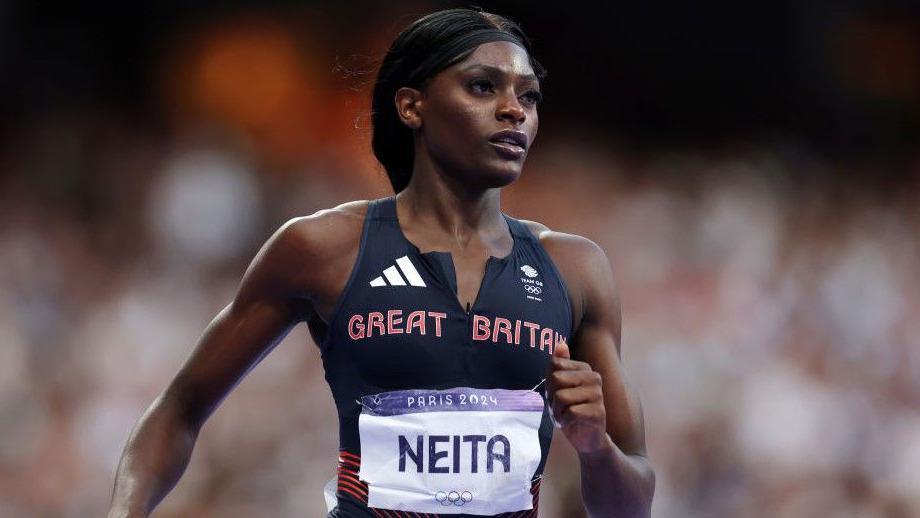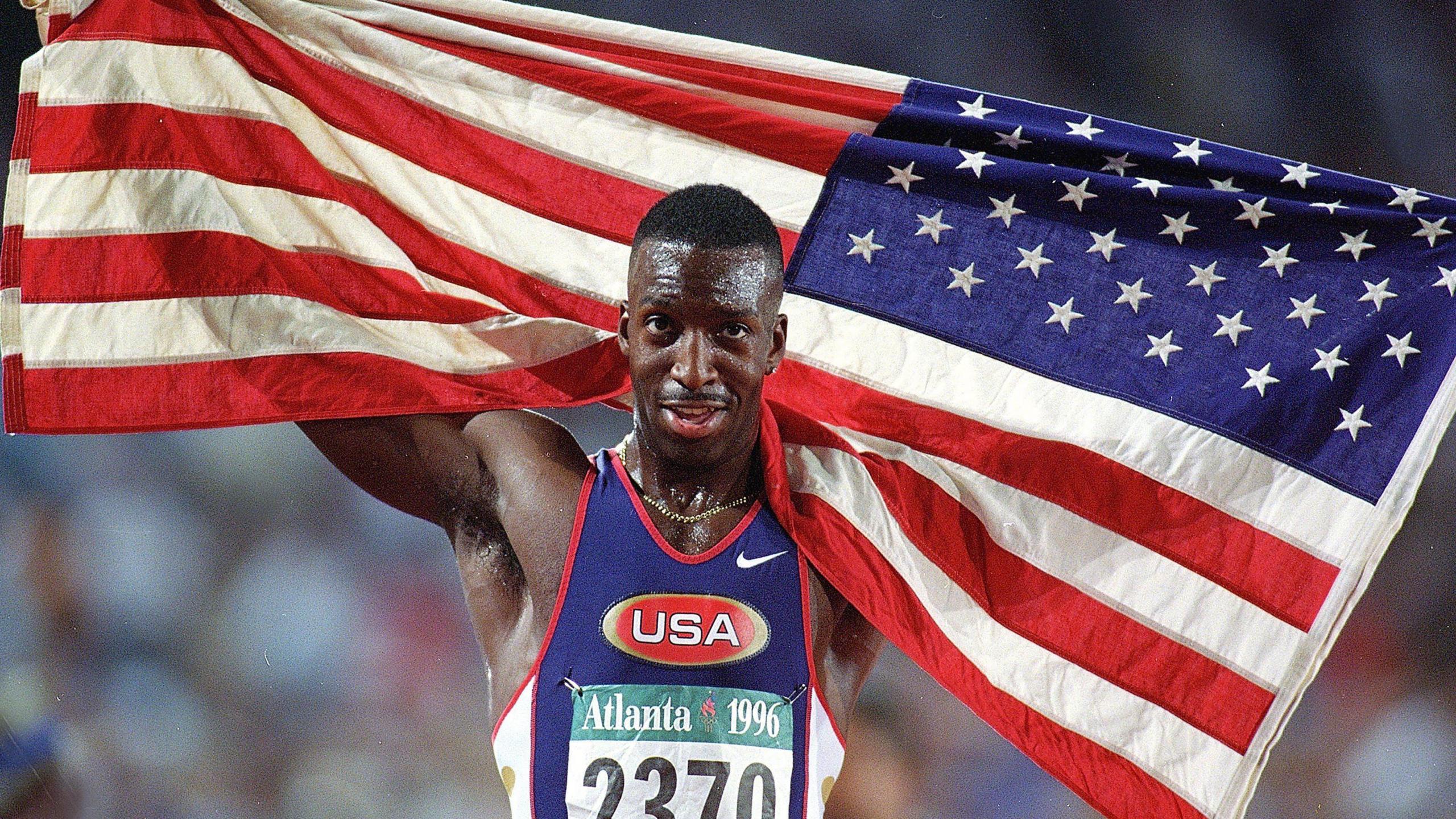GB's Neita joins Johnson's Grand Slam Track league

Daryll Neita won silver as part of the Great Britain 4x100m relay team at Paris 2024
- Published
Sprinter Daryll Neita has become the first British woman to join Michael Johnson's new athletics league.
Neita, 28, was part of the Great Britain 4x100m relay team that took silver at the 2024 Paris Olympics.
Grand Slam Track, launched by American legend Johnson in June, will aim to bring together the world's elite runners, offering $100,000 (£78,683) as a top prize.
Starting in April 2025, the new format will have a prize fund of $12.6m (£9.9m) split over four events.
Neita joins 1500m runner Josh Kerr and 400m star Matthew Hudson-Smith, both silver medallists in Paris, as the British athletes confirmed for the competition.
Alongside Neita, Kenya's 800m world champion and Olympic bronze medallist Mary Moraa and Salwa Eid Naser of Bahrain, a former world champion who won 400m silver in Paris, were also announced as competitors for 2025.
"I'm really excited to be the first British woman announced as joining Grand Slam Track, and can't wait to start racing in this fresh new league," said Neita.
"I love the concept and getting to race twice in a weekend is fun and exciting for all of us as racers. It’s an amazing opportunity to compete at the highest level in a whole new format that’s going to bring a lot of energy to the sport."
Grand Slam Track will feature four meetings each year, with two hosted in the United States.
Athletes will compete in two events each and 48 will be contracted to the league.
Money in athletics has become a talking point in recent months, with World Athletics announcing in April it would pay prize money to Olympic athletes.
In June, the governing body announced a new global championship to start in 2026 with gold medallists receiving $150,000 (£118,000).
World Athletics said its championship would have $10m (£7.87m) in prize money.
The Diamond League currently offers a $30,000 (£23,610) prize for those athletes winning an event across its 15 meetings.
"They deserve to be compensated," said 56-year-old Johnson, who is a BBC athletics pundit.
"The structure of the sport in the past has not compensated those athletes to take that risk to go and compete against the best athletes in the sport."
Related topics
- Published18 June 2024
